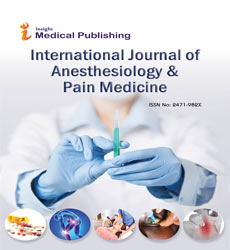Abstract
A Comparative study between Tranexamic acid and Epsilon-amino-caproic acid in reducing postoperative bleeding in patients undergoing on-pump CABG surgeries
The amount of strain that cardiac surgery exerts on blood bank services is an example that emphasizes the need for a multimodel blood conservation strategy. The most common factor which is being attributable to increased bleeding after cardiac surgery is hyperfibrinolysis. Therefore the use of antifibrinolytics during high-risk cardiac surgery becomes inevitable. Commonly used antifibrinolytic include Tranexamic Acid (TA) and Epsilon-amino-caproic Acid (EACA). The aim of our study was to compare the effectiveness of both TA and EACA in reducing post-surgical bleeding in on-pump CABG surgeries and to assess the postoperative complications associated with its use. Material and Methods After obtaining informed written consent, approval of ethics and research committee patients who were scheduled for on-pump CABG were included in the study. Patients were divided into two groups randomly by using a computer-generated randomized block design namely group TA (n=40) and group EACA (n=40). TA group received tranexamic acid at a dose of 10 mg/kg IV over 20 min at the time of induction then 1-2 mg/kg in CPB prime followed by 1 mg/kg/hour infusion during surgery. Group EACA received EACA in a dose of 100 mg/kg/IV over 20 min at the time of induction then 5-10 mg/kg in CPB prime followed by 10 mg/kg/hour infusion during surgery. Patients were assessed for blood loss and were monitored for fibrinogen level and D- dimer levels, Re-exploration, and post-operative complications. Result Primary outcomes like bleeding at 4hours, there was no significant difference between the groups but when total bleeding at 24 hours was compared there was a significantly lesser bleed in group TA group compared to group EACA (P=0.0022). The requirement of PRBC in group TA was for 3 patients, whereas in EACA group 4 patients required PRBC (P>0.05). There was no significant difference in the rate of post-operative complications between the groups (P>0.05). The conclusion from our study concluded that both TA & EACA effectively inhibits fibrinolysis during on-pump CABG surgery and thus results in decreased postoperative bleeding. When compared between the two, TA was slightly better with respect to postoperative bleeding at 24hours. Our study also re-emphasized the fact that neither of the drugs led to any additional risk of postoperative thrombotic complications.
Author(s):
Dr Rajeev Nair, Dr Satish Kumar Mishra, Dr Parli Raghavan Ravi and Dr Avanish Bhardwaj
Abstract | PDF
Share this

Google scholar citation report
Citations : 107
Abstracted/Indexed in
- Google Scholar
- China National Knowledge Infrastructure (CNKI)
- Directory of Research Journal Indexing (DRJI)
- WorldCat
- International Committee of Medical Journal Editors (ICMJE)
- Secret Search Engine Labs
Open Access Journals
- Aquaculture & Veterinary Science
- Chemistry & Chemical Sciences
- Clinical Sciences
- Engineering
- General Science
- Genetics & Molecular Biology
- Health Care & Nursing
- Immunology & Microbiology
- Materials Science
- Mathematics & Physics
- Medical Sciences
- Neurology & Psychiatry
- Oncology & Cancer Science
- Pharmaceutical Sciences

